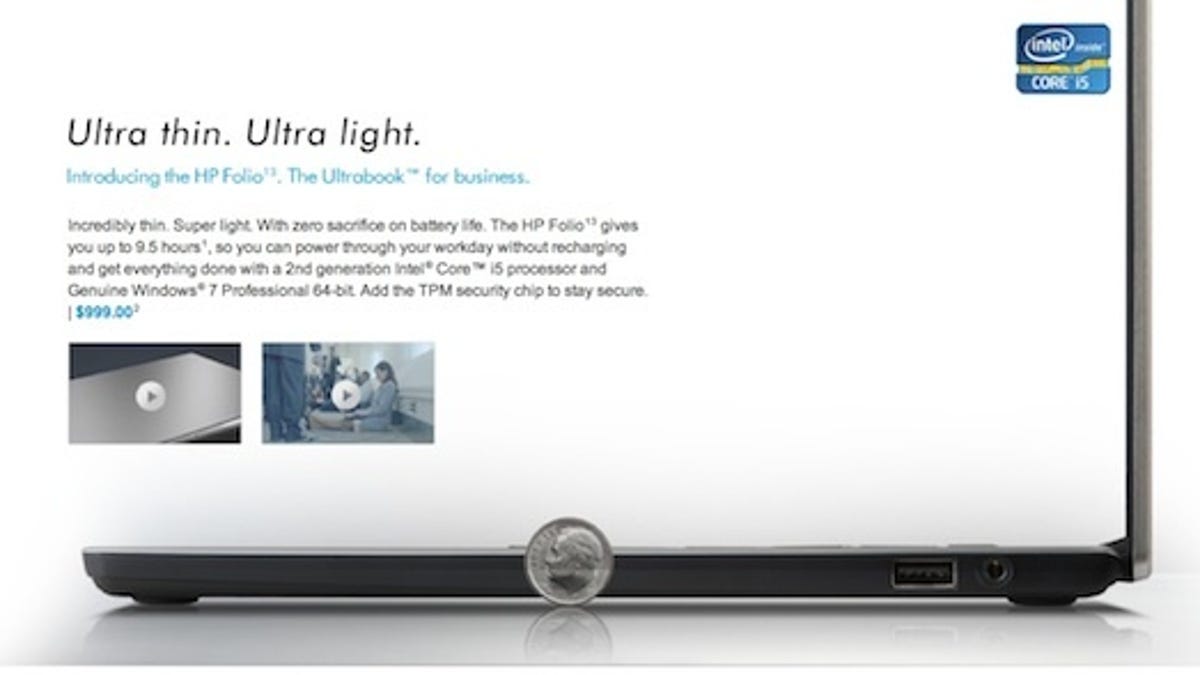There's a thin line between ultrabook success, failure
A flood of conventional laptops won't redefine the PC. Stray too far from the ultrabook concept and it's circa 2005 all over again.

If the ultrabook devolves into a hodgepodge of pseudo-thin, conventional designs, the chances of success are not good.
This may -- or may not -- be on the verge of happening with designs like the Acer Aspire Timeline Ultra M3 and even the Hewlett-Packard Envy 14 Spectre.
Though it's been said before, it's worth repeating: a kind-of-thin, kind-of-light laptop ain't an ultrabook.
I've handled the Acer M3, which is being marketed as an ultrabook. Sorry, no way that's an ultrabook. And the HP Spectre? That's a wonderful design in many respects (Gorilla glass screen and chassis) but after handling it a few times over the last several months, I know it's not an ultrabook. Too heavy, big.
What the Spectre is, is a very nice high-end laptop. Period.
So, here's the memo, if any PC maker didn't get it. The iPad and MacBook Air are popular because they're extremely thin, portable.
A few guidelines to keep the ultra in ultrabook:
- Certifiably thin, light The Toshiba Portege Z835, Dell XPS 13, and HP Folio 13 are unmistakably ultrabooks. People may disagree about their feature set, screen quality, usability of the keyboard, and so on, but they're all solid ultrabooks: thin, light, yet relatively powerful. Anything more than 0.75 inches thick and above 3.3 pounds kicks a design back into too-familiar (read: boring) territory. Yes, many people will still buy conventional laptops, but those designs are not the future of mobile computing.
- A $599 "ultrabook" may be a contradiction in terms Intel CEO Paul Otellini offered a rebuttal of sorts to the argument that ultrabooks need to be cheap to be successful. When asked earlier this month in an earnings conference call, he said: "I'm not a subscriber that it takes mainstream price points to get us to high volume. I mean...that just helps." I would tack on that it's more about the quality of the product and the aesthetics. And good aesthetics don't come cheap. A plastic, flimsy $599 "ultrabook" won't send consumers in droves to Best Buy.
- Refrigerator + toaster = fail "You can converge a toaster and a refrigerator, but those things are probably not going be pleasing to the user," Tim Cook said this week, when asked about the possibility of Apple bringing out a hybrid design that combines the elements of a MacBook Air and the iPad. Though he could be bluffing (i.e., Apple will bring out a hybrid only when it thinks it has perfected the concept. And then will call it "revolutionary") there's definitely some truth there. A bunch of kludgy contraptions (read: heavy, thick, unwieldy) that force the laptop and tablet together at gunpoint will only demonstrate to consumers that it's the worst of both worlds.

